Overnight spring rain spurs new buds, and it's once again time for the aroma of spring Tea to fill the air.
Around Qingming Festival, under the gentle caress of a warm breeze and fine rain,
on Jingmai Mountain in the Huimin Town, Lancang Lahu Autonomous County,
whether in ancient tea forests or ecological tea gardens,
everything has become even more lush and vibrant.
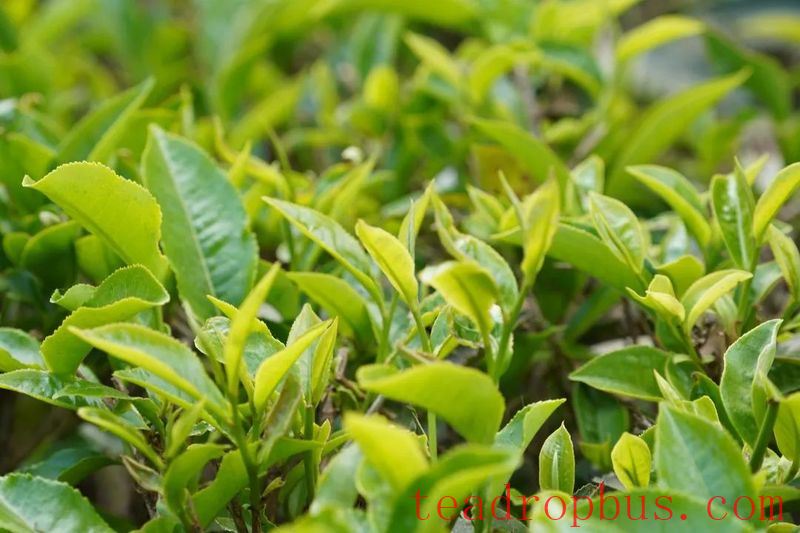
Tea trees,
vigorously sprout fresh green leaves,
presenting a scene full of vitality.
At this time,
not only are the tea forests and tea gardens bustling with people busy picking tea,
but the villages are also abuzz with the activity of processing new tea.
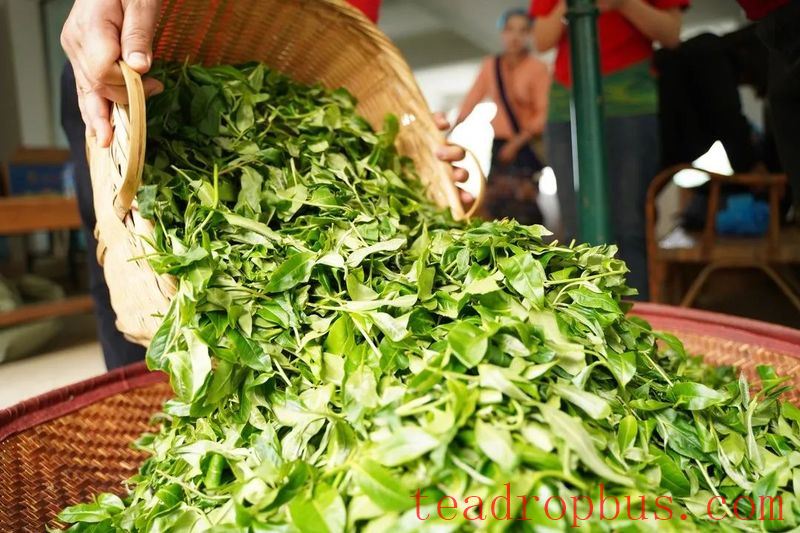
In recent days, our reporters have observed that in villages such as Jingmai Village and Mangjing Village, at dusk, tea farmers who had gone out to pick tea return one after another. Some carry their harvest on motorcycles, while others use small trucks, all returning fully laden. Without taking a moment to rest, they seize the time to process the new tea. As night falls, some tea farmers are sorting the freshly picked tea leaves, some are in the midst of processing them, and others are spreading out the processed tea to dry… The villages are filled with the rich, sweet fragrance of tea.
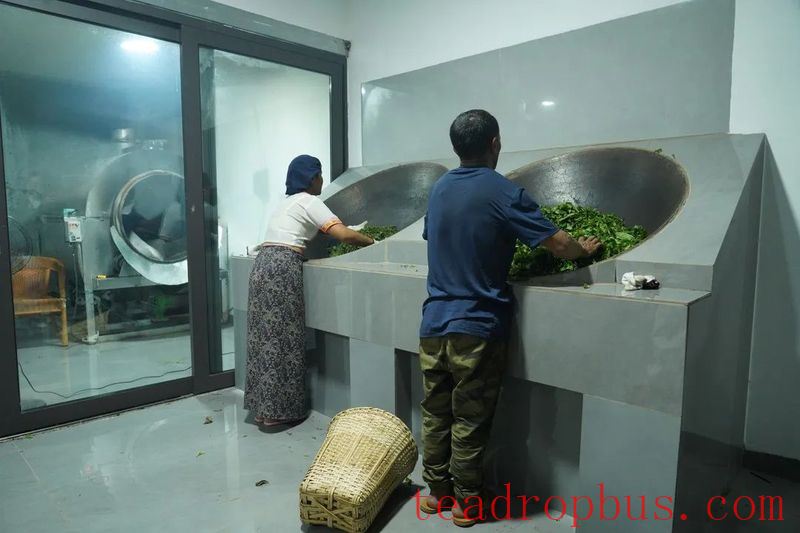
“The tea leaves picked during the day cannot be left overnight; they must be processed the same night. If you wait until the next day, both the appearance and quality will be significantly reduced, and you won't be able to sell them for a good price,” explains Nan Junjie, a tea farmer from the Upper Mangjing Village Group, while busily processing tea.
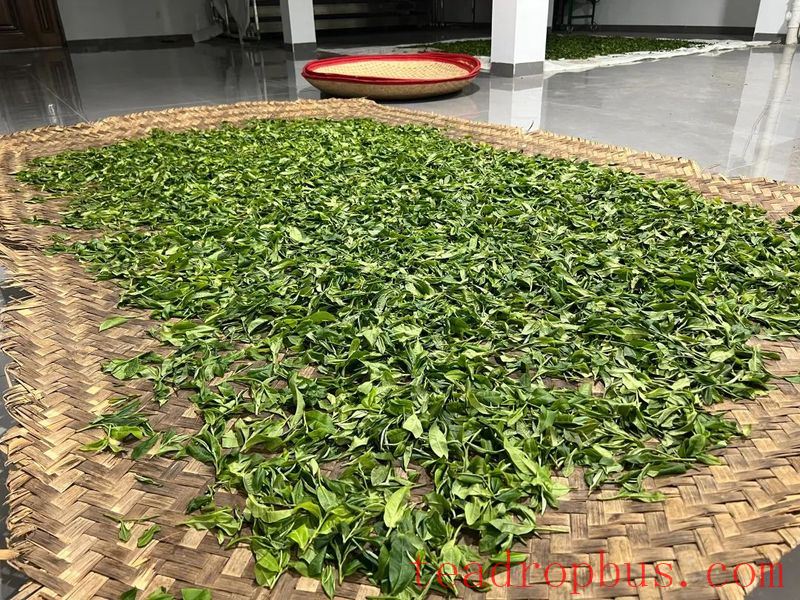
Nan Junjie's family processes ancient tree tea by hand, with the three of them—himself, his wife, and his mother—all pitching in, each with a clearly defined role. His mother tends the fire, while he and his wife handle the processing. “When processing tea by hand, a specialized iron pot is used, with dry wood as fuel. You test the temperature of the pot with the palm of your hand, aiming for an optimal temperature between 60 and 70 degrees Celsius. Your hands never leave the tea, and the tea never leaves the pot. You need to continuously stir the tea leaves to ensure they evenly contact the bottom of the pot and prevent burning. Hand-processed tea is heated uniformly and has a more fragrant and sweet taste.” With over ten years of experience in hand-processing tea, Nan Junjie speaks passionately about the secrets of this craft. As he works, the fresh tea leaves in the pot gradually lose moisture, releasing a refreshing aroma that invigorates the senses.
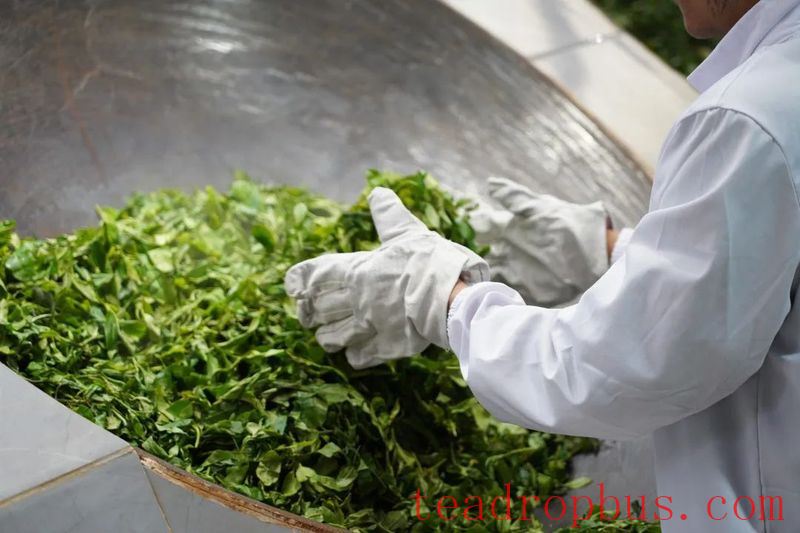
In the Upper Mangjing Village Group, Ai Xian, another tea farmer like Nan Junjie, is also busy processing new tea, using machines to process ecological tea. “My family has over 30 mu of ecological tea garden and more than 10 mu of ancient tree tea. So far, we've processed over 60 kilograms of ancient tree tea and more than 200 kilograms of ecological tea,” says Ai Xian. He adds that tea farmers on Jingmai Mountain all cultivate and process tea with dedication, ensuring both ancient tree tea and ecological tea have very high quality and a rich, mellow flavor.
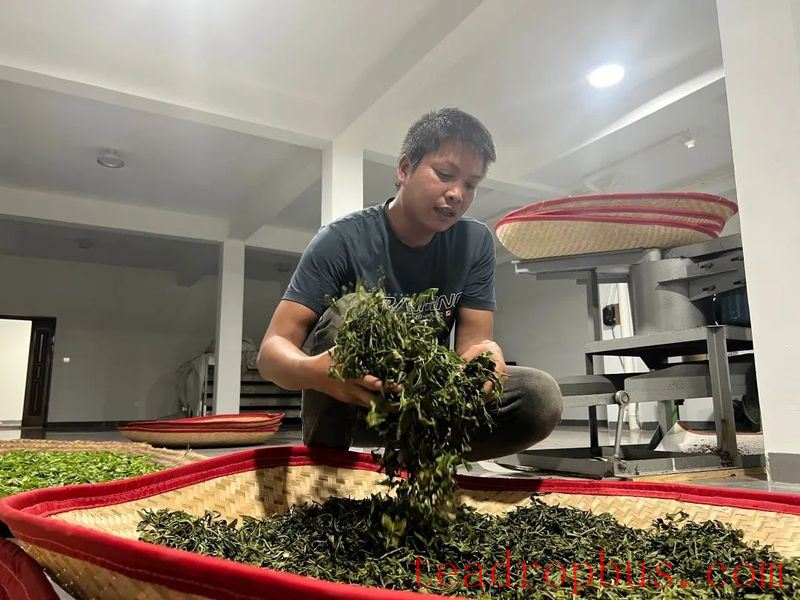
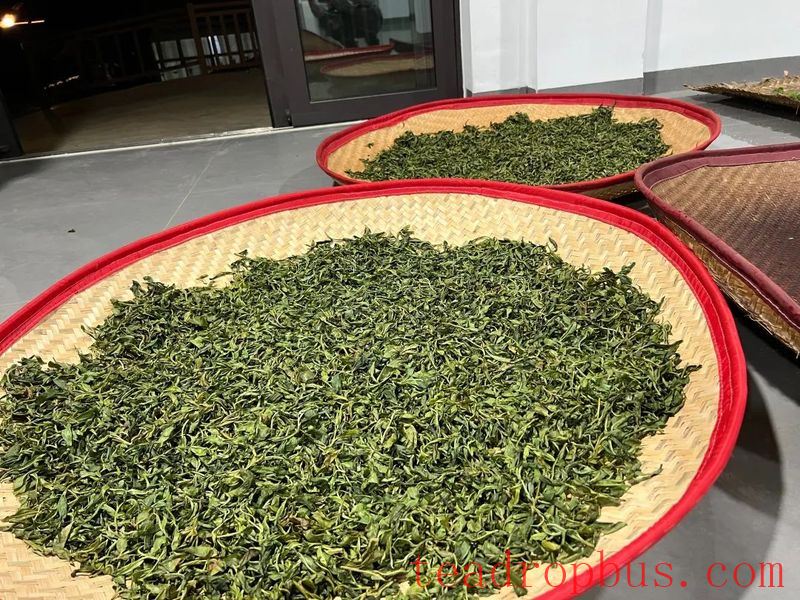
Currently,
it is the season when tea sprouts anew,
and the busy period for the tea farmers on Jingmai Mountain has just begun.
The sweet fragrance of newly processed tea will continue to waft through the air…
Authors: Hu Xueying, Zang Ling, Zhao Wei, Zhou Suyu